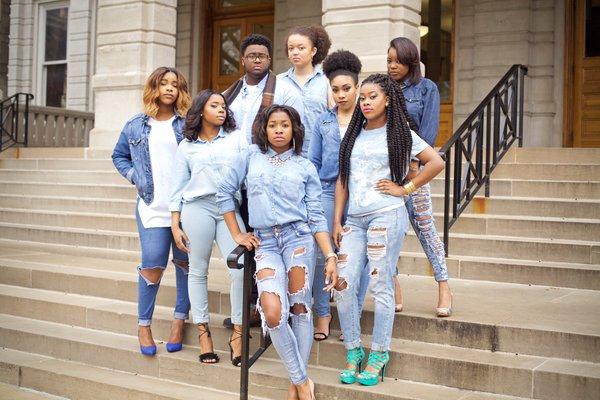
The 2016–17 Legion of Black Collegians executive cabinet wants to respond to the difficulties Black students faced on campus [last semester](https://www.themaneater.com/stories/2015/11/5/interactive-timeline-historic-fall-mu/) with their platform “The Bounce Back: Regaining Our Voice.”
“Last semester was hard,” LBC President Shelby Anderson said. “It was rough, (with) everyone having to find their place, especially freshmen, because that was their first semester on campus.”
Anderson designed the platform and chose the other cabinet members with it in mind. She and Vice President Marshall Allen both said they want to focus on developing a stronger LBC presence on campus and serving the greater Columbia community.
“The Legion started with the purpose of making sure that we are the voice of Black students on campus,” Anderson said. “We are still striving (for that). We’re redeveloping what that looks like.”
LBC is the only Black student government in the nation. Other schools have Black student organizations and unions, but LBC is the only one that receives university funding.
LBC announced the cabinet via Twitter on April 17. The cabinet consists of Political Chairwoman Ida Campbell-Jones, Communications Chairwoman Asha Hopton, Activities Chairwoman Andrea Fulgiam, Activities Vice Chairwoman Darica Benton, Financial Chairwoman Naa Amorkor Amartey, Executive Secretary Razia Hutchins and Freshman Action Team Co-Chairwomen Denajha Phillips and Kelsie Wilkins.
One of the cabinet’s main objectives is to reestablish LBC as a political organization. The cabinet plans to educate Black students about the upcoming presidential election.
“I want everybody who can be prepared to be prepared,” Anderson said. “I don’t want people just voting based on what they see on Twitter.”
She said in an email that Campbell-Jones and Fulgiam will plan and hold events to educate students about the election. Allen, the previous political chairman, said in an email he will contribute to the efforts. One way the cabinet plans to educate is by holding campaign watch parties.
“The purpose of these events is to watch the debates between the candidates while having transparent discussions about what policies and legislation will benefit us as students and furthermore as Black people,” Allen said.
Anderson said the cabinet also hopes to bring in an expert to analyze each candidate’s campaign and plans. She said it is important students know exactly who they are choosing to lead the country while they are starting their careers or attending graduate school.
She also intends to educate students about intersectionality, the overlapping of various identities such as gender and sexual orientation, in the Black community.
Another major platform goal is to unite the student body with the city through community service. Allen and Anderson both emphasize the importance of helping Columbia’s Black youth.
“By being representatives of Mizzou, the Black community here will see that there are students who believe in giving back, who understand what it is like to be told that they will never make it to higher education (and) who know what it’s like to not have endless amounts of opportunities,” Allen said. “They will understand that we are here for them just as much as we are here for ourselves.”
Each cabinet member has different plans for connecting with the student body. Hopton plans to use social media to unite the Black community. Hutchins, who is in charge of LBC’s weekly newsletter, wants to make it appealing and exciting to all students regardless of skin color.
Amartey, who is in charge of the organization’s finances, hopes to co-program with LBC’s umbrella organizations, such as LBC Gospel Choir, the MU chapters of NAACP and the National Association of Black Journalists, and most of the fraternities and sororities in the National Pan-Hellenic Council. She said co-programming did not happen enough over the past year.
“If we do want to work on strengthening our voice and being an advocate, we can’t do it alone,” Amartey said in an email. “We need to help our umbrella organizations, and we need their help too.”
Anderson wants LBC to be a home, a government and a business for others just like it is for her. She also wants to make it clear to the MU faculty and administration that while Black students can hold protests, they can also have discussions with university leaders about policies.
“While our sole purpose is focusing on Black students, encouraging a campus that denies oppression in any form is growth for all minorities,” Anderson said.
_Edited by Emily Gallion | [email protected]_